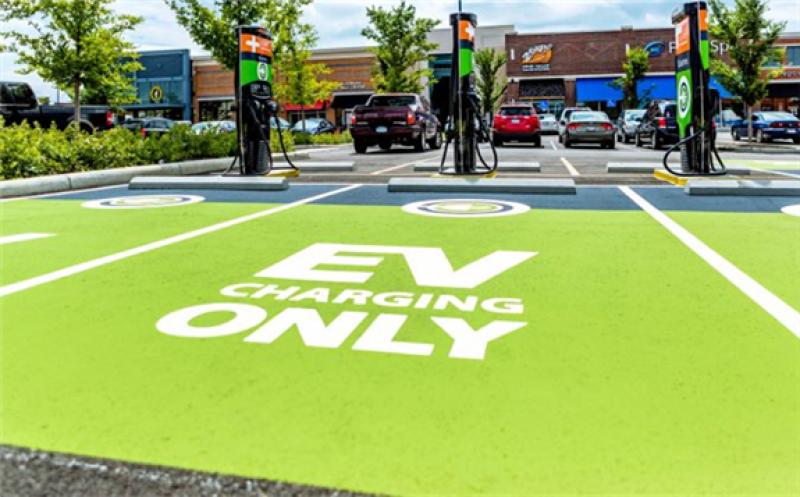ChargePoint has raised $127 million, its latest massive round of equity financing to build out a U.S. and European charging network to meet the needs of a fast-growing global electric vehicle fleet.
Wednesday’s round brings ChargePoint’s total funding to $660 million, with a panoply of previous investors including American Electric Power, Braemar Energy Ventures, Canada Pension Plan Investment Board, Chevron Technology Ventures, Clearvision, GIC, Linse Capital and Quantum Energy Partners.

It’s the latest equity infusion for a company that’s taken a leading position in key EV charging markets. ChargePoint raised $240 million in 2018 from investors including oil major Chevron’s Technology Ventures, Midwest utility American Electric Power and Daimler Trucks & Buses, $106 million in 2017 from Daimler, BMW I Ventures, Linse Capital, Braemar Energy Ventures and Rho Capital Partners, and $50 million in 2016 from Linse, Braemar and Constellation Energy, the competitive energy retailer owned by utility Exelon.
ChargePoint’s network includes 114,000 charging points in the U.S. and Europe, including home chargers and public charging stations, making it the single largest EV charging system provider in the world. The Campbell, Calif.-based company, founded in 2007 as Coulomb Networks, has built a business on networking a variety of charging systems with its proprietary network and software, which allows third-party operators to outsource much of the complexity of managing billing, maintenance and other challenges of operating them.
This additional value has helped ChargePoint survive in a business that’s still largely driven by government mandate rather than pressing consumer demand and has claimed would-be charging network competitors such as Ecotality and Better Place. ChargePoint bought just under 10,000 charging stations from General Electric in 2017 and has grown its reach with open network partnerships with charging providers EV-Box and Flo that allow customers to share access.
It’s also expanded into services for the companies and governments taking an early lead in electrifying their transportation fleets, buying Oakland-Calif.-based Kisensum and its fleet management software for an undisclosed sum in 2018.
While electric vehicles made up only 2.6 percent of global automotive and heavy-duty vehicle sales last year, that share is set to grow to nearly 14 percent by 2030, according to Wood Mackenzie. That’s driving a growing demand for charging systems to supply them, for both private and public use.
Wood Mackenzie predicts that by 2030 there will be 8.6 million EV charging outlets installed in Europe, 9.8 million in China and 10.8 million in North America. There are around 3.3 million chargers installed across all of those markets today.
These growth projections are driving increased investment in the EV charging space, despite a slowdown this year due to the COVID-19 pandemic and its economic disruptions. In the past two months, managed fleet charging provider Amply raised $13.2 million and FreeWire Technologies raised $25 million for fast-charging systems that include batteries to reduce grid loads and interconnection challenges.
ChargePoint faces deep-pocketed rivals in its goal of maintaining its leading position in the EV charging space. In Europe, French energy giant Engie bought EV-Box in 2017, U.K. oil giant BP bought Chargemaster in 2018, and Royal Dutch Shell subsidiary Shell New Energies bought European charging network provider NewMotion in 2017 and North American EV charging networking startup Greenlots last year.
ChargePoint competes in the U.S. against rivals such as EVgo, which owns the country’s largest fast-charging station network, and the Electrify America network being rolled out by Volkswagen as part of its “Dieselgate” settlement.







